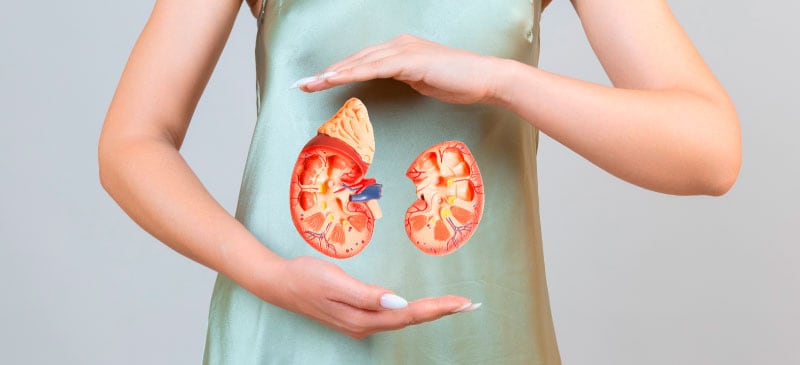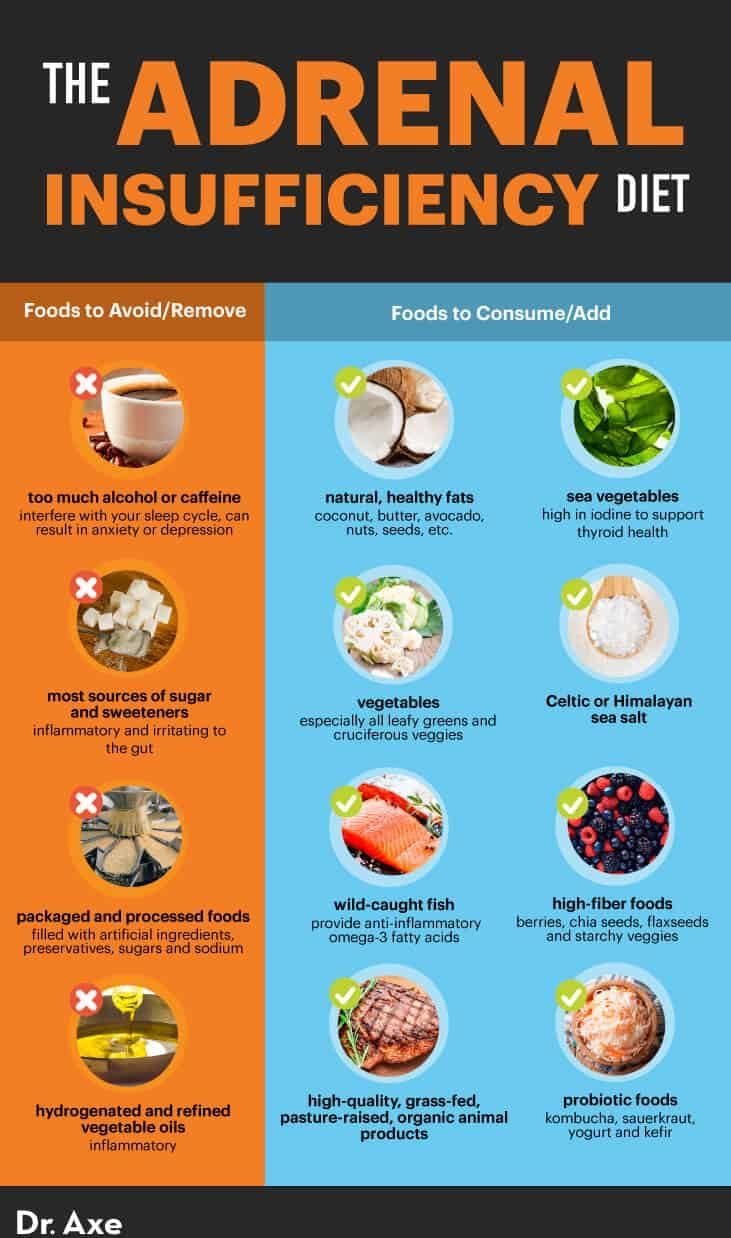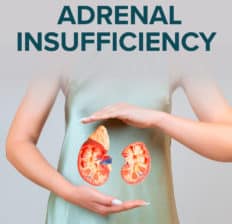This Dr. Axe content is medically reviewed or fact checked to ensure factually accurate information.
With strict editorial sourcing guidelines, we only link to academic research institutions, reputable media sites and, when research is available, medically peer-reviewed studies. Note that the numbers in parentheses (1, 2, etc.) are clickable links to these studies.
The information in our articles is NOT intended to replace a one-on-one relationship with a qualified health care professional and is not intended as medical advice.
This article is based on scientific evidence, written by experts and fact checked by our trained editorial staff. Note that the numbers in parentheses (1, 2, etc.) are clickable links to medically peer-reviewed studies.
Our team includes licensed nutritionists and dietitians, certified health education specialists, as well as certified strength and conditioning specialists, personal trainers and corrective exercise specialists. Our team aims to be not only thorough with its research, but also objective and unbiased.
The information in our articles is NOT intended to replace a one-on-one relationship with a qualified health care professional and is not intended as medical advice.
Natural Ways to Help Deal With Adrenal Insufficiency
July 21, 2023

Adrenal insufficiency is a condition that occurs when your adrenal glands become impaired and therefore don’t produce high enough levels of several important hormones. In people with adrenal insufficiency, levels of the hormones cortisol and aldosterone (a type of mineralocorticoid) are both usually lower than in healthy people.
The adrenal glands are truly amazing in that they pump out dozens of different life-dependent hormones daily. Some are the so-called “stress hormones'” like cortisol that have many crucial roles within the body:
- regulating electrolyte balance
- managing fluid retention and body weight
- helping you sleep and concentrate
- giving you a sex drive
- and much more
This is why adrenal fatigue and hormonal imbalances are usually noticeable and impact all areas of your life.
There are two main classifications of adrenal disorders. One type, referred to as Addison’s disease, is caused by illnesses of the adrenal glands themselves, including adrenal cancer, infections or bleeding (called “primary adrenal insufficiency”).
This type is less common and usually causes physical damage to the adrenal glands that can be detected. Primary adrenal insufficiency is diagnosed when about 90 percent of the adrenal cortex has been destroyed.
The second group of adrenal disorders is much more common and develops despite no physical illnesses in the adrenal glands, but rather stress-related or autoimmune reactions taking place. Called “secondary adrenal insufficiency,” this still results in serious hormonal imbalances and symptoms.
Adrenal Insufficiency Symptoms
How do you know if you’re experiencing adrenal insufficiency versus just temporarily feeling more stressed than usual? Some of the common signs and symptoms of adrenal insufficiency include:
- chronic fatigue (lasting more than a couple weeks)
- muscle weakness
- changes in appetite (especially a loss of appetite)
- weight loss
- digestive issues (including abdominal pain, nausea, vomiting, diarrhea)
- low blood pressure
- dizziness or fainting
- mood changes, irritability and depression
- headaches
- cravings for salty foods
- low blood sugar (hypoglycemia)
- trouble sleeping, which leads to always feeling tired
- sweating and night-sweating
- missed menstrual or irregular periods in women
- low libido
These symptoms and feelings can come on gradually and might be triggered by a very stressful life event. Many people describe the feeling of adrenal insufficiency as being “wired but tired” — so you feel your heart beating, body producing sweat and mind racing, yet you’re also fatigued, stressed and irritable at the same time.
Most of these symptoms are caused by very low levels of cortisol, a hallmark of adrenal insufficiency.
In rare circumstances, a more serious form of cute adrenal insufficiency can develop called Adrenal Crisis (or Addison Disease Crisis). Sometimes people experience an “adrenal crisis” following some type of traumatic life experience, and this makes the symptoms worse enough that they finally seek medical treatment. This condition is life-threatening and must be treated immediately by professionals, so it’s important to get to the emergency room right away if symptoms show up.
Symptoms can come on gradually or abruptly, and sometimes they are triggered by a very stressful event or a change in adrenal medication. The “crisis” takes place when severe adrenal insufficiency is caused by insufficient levels of cortisol, possibly due to not initially treating a case of milder adrenal insufficiency.
According to the National Institutes of Health, symptoms of adrenal crisis include:
- Abdominal pain
- Confusion or coma
- Dehydration
- Dizziness or light-headedness
- Fatigue
- Flank pain
- Headache
- High fever
- Loss of appetite
- Loss of consciousness
- Low blood pressure
- Nausea
- Profound weakness
- Rapid heart rate
- Rapid respiratory rate (see tachypnea)
- Slow, sluggish movement
- Unusual and excessive sweating on face or palms
- Vomiting
Adrenal crisis intervention usually involves high-dose steroid injections, fluids and electrolytes to help restore function of the adrenal and pituitary glands. If left untreated, people can suffer serious symptoms and even die suddenly, so this is a situation to take very seriously.
Causes
The underlying cause of secondary adrenal gland failure is usually the body experiencing autoimmune reactions. This essentially means that your immune system starts working on overdrive, attacking its own healthy tissue because it mistakenly suspects that the body is being attacked by a “foreign invader” or threat.
While medications, genetic factors, surgery, illnesses and serious infections can also cause adrenal problems, autoimmune reactions are the No. 1 reason by far for secondary adrenal insufficiency.
When someone experiences an autoimmune disease, for reasons that still aren’t totally understood, the adrenal cortex is sometimes viewed as potentially harmful — so an abundance of white blood cells and proteins from the immune system begin to attack and destroy it.
Under constant attack, the adrenal glands lose the ability to adequately respond to a stimulating hormone called adrenocorticotropin (ACTH) by the pituitary gland. The intricate system in the body called the hypothalamus-pituitary-adrenal axis no longer functions to send and receive signals that govern hormone production.
Once the adrenals become unresponsive to ACTH and no longer pump out all the necessary hormones we need to function well and feel good, symptoms start to kick in, sometimes slowly, but other times quickly and aggressively.
What’s the cause of autoimmune reactions? Usually it’s a combination of different factors that include:
- High levels of stress or a very stressful experience (like death in the family or major life change)
- Exposure to environmental toxins and pollution
- Lack of sleep and constantly pushing yourself despite feeling exhausted
- Poor diet (including one that triggers allergies)
- Over-exercising/overtraining or a lack of exercise
Another form of adrenal insufficiency is congenital adrenal hyperplasia, which is genetic and a condition that a baby is born with. This type is rare, affecting just one in every 10,000–18,000 babies. In many states newborns are tested for this condition, but unfortunately there is no known cure and treatment plan in place as of this time.
This type of adrenal insufficiency is caused by a lack of certain enzymes that the adrenal gland needs to make hormones. It can cause the body to produce more androgen, which is a type of male sex hormone, so symptoms can include changes in menstrual cycles, male pattern hair growth/balding, a deepening voice, on top of symptoms normally seen in adrenal insufficiency.
Treatment involves brining hormones levels back to normal as much as possible, usually by hydrocortisone.

How It Develops
There are two main parts of the adrenal glands that produce hormones: the interior (medulla), which secretes adrenaline (the “fight or flight” hormone) and other similar hormones, and the outer layer (cortex), which secretes corticosteroids. The primary types of corticosteroids produced by the cortex include glucocorticoids (including cortisol), mineralocorticoids and androgens (male sex hormones).
Of all of these various hormones, the one we usually hear most about is cortisol. That’s because cortisol controls a wide range of emotions, reactions and functions within the body:
- activating the body’s stress responses
- raising blood sugar
- helping convert nutrients from food into usable energy
- triggering the immune system
- producing inflammatory responses
- and more
In fact, researchers believe that cortisol likely has hundreds of different functions in the body and affects almost every organ and system in one way or another.
Aside from cortisol, other adrenal hormones like mineralocorticoids help maintain nutrient levels in the body, including sodium and potassium, which are needed to balance one another out and keep blood pressure normal.
Androgens are another type, classified as sex hormones that both women and men have. Androgens (including testosterone) are often called “male sex hormones” because they’re involved in masculine bodily functions, like building muscle mass, controlling hair growth and maintaining a libido.
In a healthy person, here’s a quick overview of how the adrenal glands should work:
A part of the brain called the hypothalamus (considered the “control center” for most hormones) sends the pituitary gland “releasing hormones” in order control sex hormone production, thyroid and adrenal functions. The pituitary gland then has the job of communicating with the adrenal glands, sending signals of ACTH that is meant to stimulate adrenal hormone production.
Usually, the adrenals do their job, making proper levels of cortisol and other hormones, and the pituitary gland and hypothalamus get the message — but in people with adrenal insufficiency, all of the communication lines are thrown off.
Diagnosis
To test for adrenal insufficiency, your doctor will likely talk to you about your stress levels, symptoms and history. Hormonal blood and urine tests to check for levels of ACTH, cortisol and other factors are also typical.
The ACTH stimulation test is the most commonly used and involves getting an injection of synthetic ACTH along with testing reactions in the blood and urine for changes in cortisol levels. Even with ACTH administered, people with adrenal insufficiency have little or no increase in cortisol.
A CRH stimulation test can also help determine the cause of adrenal insufficiency and involves blood being taken before and 30, 60, 90 and 120 minutes after an ACTH injection. Blood tests (such as an insulin-induced hypoglycemia test) can also reveal low blood sodium, low blood glucose and high blood potassium, which are sometimes observed in people with adrenal problems.
Finally, a blood test can detect antibodies, proteins made by the immune system, that are associated with autoimmune diseases.
Addison’s disease (also called primary or chronic adrenal insufficiency or hypocortisolism) is one type of autoimmune endocrine disorder that affects about one in 100,000 people. Addison’s disease symptoms are usually even more prominent and include weight loss, muscle weakness, fatigue, low blood pressure and changes in skin color.
It’s believed that Addison’s disease is a result of similar adrenal impairments, especially low levels of cortisol. Many reported cases of Addison’s disease are believed to be caused by autoimmune disorders in which the immune system makes high levels of antibodies to destroy the adrenal glands.
Natural Ways to Manage
1. Adjust Your Diet
One of the most important steps you can take to naturally support adrenal and hormonal balance is taking out foods that stress your body and adding in foods that replenish your adrenal energy. Removing common allergens or sensitivities, toxins, and chemicals can help your body heal itself.
These include:
- too much alcohol or caffeine, which interfere with your sleep cycle and can result in anxiety or depression — in addition to caffeine overdose
- most sources of sugar and sweeteners (including high-fructose corn syrup, packaged sweet products and refined grains that trigger a sugar addiction), which are inflammatory and irritating to the gut
- as many packaged and processed foods as possible, since these are filled with many types of artificial ingredients, preservatives, sugars and sodium
- hydrogenated and refined vegetable oils (soybean, canola, safflower, sunflower and corn), which are highly inflammatory
Replace these with as many whole, unrefined foods as possible. Some of the best choices included in a healing diet are:
- natural, healthy fats (coconuts and coconut oil, butter, avocado, nuts, seeds, and olive oil, for example)
- plenty of vegetables (especially all leafy greens and cruciferous veggies, like cauliflower, broccoli, Brussels sprouts, etc.)
- wild-caught fish (such as salmon, mackerel or sardines that provide anti-inflammatory omega-3 fatty acids)
- high-quality animal products that are grass-fed, pasture-raised and organic (eggs, beef, chicken and turkey, for example)
- sea vegetables, like kelp and seaweed (high in iodine to support thyroid health)
- Celtic or Himalayan sea salt
- high-fiber foods, like berries, chia seeds, flaxseeds and starchy veggies
- probiotic foods, like kombucha, sauerkraut, yogurt and kefir

2. Reduce Stress
Changing your environment to help lower stress is crucial for adrenal health. Effective stress reduction comes in many forms and depends on the person.
Some great ways to bust stress include:
- practicing hobbies or something fun every day
- meditation and healing prayer
- relaxing breathing techniques
- spending time outside, in the sunlight and in nature
- maintaining a consistent and reasonable work schedule
- eating on a regular schedule and avoiding too many stimulants, like alcohol, sugar and caffeine
- exercising in a moderate, enjoyable way without pushing yourself past your limits
- getting professional help when needed to deal with major life events or traumas
3. Make Getting Good Sleep a Priority
Your adrenal glands need plenty of quality rest to work properly, since a lack of sleep means they need to crank out extra stress hormones like cortisol to keep you up and battle low energy levels. Rest when you feel tired, and get as much quality, uninterrupted sleep as you can, aiming for seven to nine hours a night depending on your specific needs.
Try to stick to a regular schedule since your body loves a routine, and avoid staying up late and flip-flopping your wakeup times as much as you can.
4. Consider Changing Your Exercise Routine
Exercise helps bust stress, but it’s also possible for there to be “too much of a good thing.” Over-exercising and not recovering properly with rest days taxes your adrenals and messes with hormone production.
Move your body in ways that you enjoy, but also give yourself rest when needed, allow for adequate muscle recovery, and listen to your body for signs of fatigue or injury. Not doing any exercise at all can leave you stagnant, moody and tired, but pushing yourself too hard is also a major stressor and ultimately winds up backfiring.
5. Try Beneficial Supplements
Supplements that support adrenal functioning include:
- Ashwagandha and holy basil (“adaptogen herbs” that help the body deal with stress)
- Omega-3 fish oil (EPA/DHA)
- Licorice root
- Magnesium (an anti-stressor)
- B vitamin complex, including vitamin B5 and vitamin B12
- Vitamin C (an antioxidant and anti-inflammatory)
- Vitamin D3 and zinc (support hormone functioning)
How Long Should It Take to See Improvements?
It can take some time to naturally improve your adrenal glands and start to feel more energetic, clear-headed, and in control of your hormones, weight and appetite. Everyone is different and reacts to lifestyle changes in unique ways.
Some people will need to take medications to ultimately treat their problems, while others can feel drastically better by simply paying attention to their diets, stress levels and lifestyles. Either way, following the recommendations for natural remedies listed above is definitely still the way to speed up treatment time and prevent the problem from worsening.
While there isn’t necessarily one tried-and-true way to recover from adrenal problems, here’s what you can expect in terms of timing:
- 6–9 months for minor adrenal issues
- 12–18 months for moderate adrenal insufficiency
- Up to 24 months for severe adrenal insufficiency
If you visit a doctor about adrenal insufficiency (including an endocrinologist who specializes in hormonal diseases), she or he might recommend you take medications to help speed up the healing process and reverse cortisol deficiency symptoms. Taking glucocorticoid medications like prednisone or hydrocortisone are the most common treatments, and the dosage of these depends on your level of stress, any present infections, medical history and injuries. The primary reason for taking hormonal replacement medications is to bring your cortisol and other hormone levels up to normal as quickly as possible.
Another important aspect to consider is how your current medications might be affecting your adrenals in a negative way. It’s possible that adrenal insufficiency can develop when a person taking glucocorticoid hormones (like prednisone) for a long time, which act similarly to cortisol, suddenly stops taking those medications.
If you’re on any prescriptions for treating inflammatory illnesses like rheumatoid arthritis, asthma or ulcerative colitis, talk to your doctor about how to adjust your dosage appropriately before changing them yourself since these can lower ACTH and cortisol.










